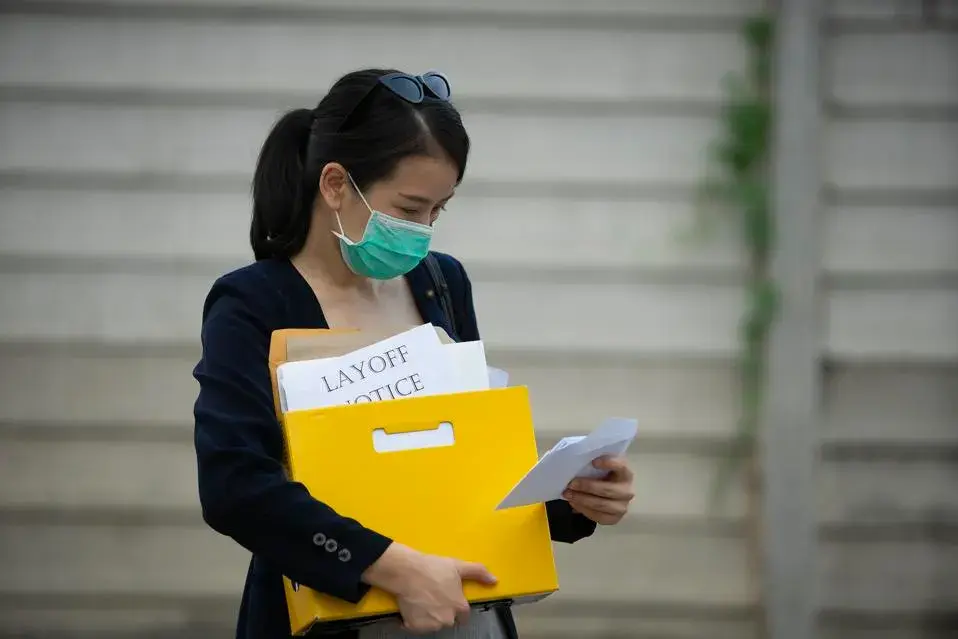Firing Trends: What November's Jobs Report And Tech Layoffs Mean For DEI
- Holly Corbett
- Dec 5, 2022
- 4 min read

From Meta to Twitter to Amazon, layoffs have largely been centered in the tech sectors—which boomed during the pandemic to meet consumer demand—in an attempt to weather what many economists are saying is certain to be a recession. Other sectors have added jobs slightly, such as leisure and hospitality, health care, government, social assistance and construction.
Yet as companies prepare for an upcoming recession and potentially cut back on workers across other sectors, they can’t lose sight of how investing in diverse talent and their people at large will help them weather an economic downturn and come out stronger on the other side.
Federal Reserve Chairman Jerome Powell announced that in order to combat inflation, interest rates must continue to rise slightly to curb consumer spending that is contributing to driving up prices. In light of this news, some economists were expecting job growth to slow in November, but the number of workers increased by 263,000 in November. The unemployment rate remained unchanged at 3.7%, according to the November jobs report from the Bureau of Labor Statistics.
“Normally adding 263,000 jobs would be a good thing, but because of the current state of the economy and inflation, it's kind of like good stuff, bad stuff,” says Jennifer Streaks, senior personal finance reporter for Business Insider. “It's showing that the economy is still hot and that's going to signal to the Fed to continue to raise rates. In terms of diversity and inclusion, unemployment is at 3.7% across the board, but amongst African Americans, it's 5.7%. Unfortunately, it's not going down anytime soon, and I think that's problematic.”
In a country that is growing more diverse, companies can’t afford to repeat the same mistakes of the past and remain relevant today. For example, when unemployment rates peaked at 10% during the Great Recession, people of color were among the hardest hit. Research finds that workers of color are the most likely to be fired during an economic downturn, and the last to be rehired during recoveries. Moreover, a gender and racial wage gap exists that could be exacerbated during a tightening labor market, where women’s finances also are more likely to suffer due to carrying greater student loan debt and the pink tax. Movements sparked during the pandemic around racial reckoning have employees and consumers demanding more of corporations.
“I hope that companies now look through a clear lens when it is time for layoffs and not a biased lens,” says Streaks. “The lens should be that any employment is viewed through who has the talent and who meets our needs. Also, it's up to corporate America to find value in diversity within their workforce, and to hire more people of color and train them to rise through the ranks so that their teams look like the country and customers that they’re serving.”
Diverse representation in companies will be needed in order to continue to move DEI forward as research shows that women and people of color are more likely to lead DEI initiatives in the workplace. Moreover, tech layoffs may be focusing on HR and DEI teams—signaling that DEI may be less of a priority for businesses because companies are putting their main focus on revenue generating during economic downturns, but that’s a mistake.
“What is the purpose of having a business if it's not bringing in revenue and opportunities for everyone? And so it [recession and slow business] forces companies to put less priority on DEI, except in the hiring phase,” says Dr. LaNail Plummer, CEO of Onyx Therapy Group. “While DEI in the hiring phase is a great foundation, it's not sustainable, because once you onboard them, then what? There's less conversations, less openness, and less creativity because there's not the same amount of time and availability for innovation because everyone is just trying to stay afloat. So companies may not be as open to DEI efforts because they are just trying to survive.”
Another piece of the puzzle is that the jobs reports are based on the number of people who are working and looking for jobs, and there's a large segment of the population during the pandemic that left and haven't come back.
“Just because people are being laid off and resigning, doesn't mean that they're ready to go back to the workforce,” says Dr. Plummer. “We see a lot of people still who are unemployed because they don't want to go back to work, and that's a trauma response. They're afraid of re-engaging in environments where there's microaggressions and they don't have support. They don’t want to go back into a workplace that they believe is going to compromise their mental health. Also, I think companies still think about DEI as an option and not as a necessity. When people go into survival mode, they're not thinking about DEI, they're thinking about money.”
In order for companies to attract and retain diverse talent now and in the future, they must take into account traditionally underrepresented populations when they consider layoffs. Without a diverse workforce, companies won’t be able to grow because they’ll be missing the mix of voices needed to speak to their customers and the employees who will push for inclusive cultures that both employees and consumers are demanding.
*Article originally published in Forbes




Comments